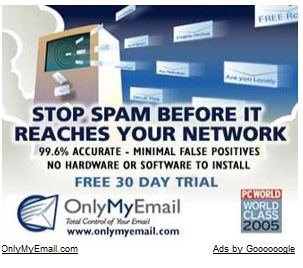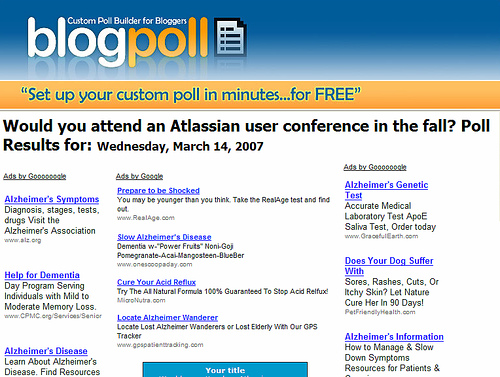I’m still wondering if the How to Safeguard Your Privacy Online post on GigaOM is real or a parody. No, I’m not talking about the advice for the paranoid, which includes gems like:
Do not make international phone calls.
Do not have a home broadband connection.
After all, these are for the paranoid… but let’s look at some of the tips for most of us, assuming we fall under the Feeling Practical But Not Paranoid category:
Do not use desktop search tools like Google Desktop or Microsoft Desktop Search.
Do not use webmail from a service provider like AT&T, Google or Microsoft.
Do not use browser toolbars or desktop gadgets.
Remove all social network accounts.
Clear your browser cookies after every session.
Change your local username daily.
He is so right, yet so wrong. Yes, the above are all real dangers on our privacy – but hey, we all know since Scott McNealy we don’t have privacy anyway. He got chastised for his famous declaration in 1998 – perhaps he was a bit ahead of his time, but things got a lot worse (better?) since then.
 Let’s just look at cookies. The obvious Privacy 101 principle in the 90’s was to control them. Since then we’ve seen an army of cookie-washer products, the popular browsers all offer their own privacy/cookie settings – yet all this works less and less. Quite a few sites – including blogs – will fail to load properly when seemingly unrelated, third-party cookies are blocked. Sometimes they work, but next time you come back to the site, there’s just a white, blank screen. This is ugly. Since I can’t easily figure out what blocked the site, I typically end up deleting all browser cookies as well as all cookie-rules. Then the game starts again – some of the sites / blogs take minutes to rotate through dozens of cookie-requests, literally making it impossible to read their own content. I’m about to give up: might as well just enable cookies – privacy is long gone, anyway. Besides, if I am getting ads served up, they might as well be better targeted.
Let’s just look at cookies. The obvious Privacy 101 principle in the 90’s was to control them. Since then we’ve seen an army of cookie-washer products, the popular browsers all offer their own privacy/cookie settings – yet all this works less and less. Quite a few sites – including blogs – will fail to load properly when seemingly unrelated, third-party cookies are blocked. Sometimes they work, but next time you come back to the site, there’s just a white, blank screen. This is ugly. Since I can’t easily figure out what blocked the site, I typically end up deleting all browser cookies as well as all cookie-rules. Then the game starts again – some of the sites / blogs take minutes to rotate through dozens of cookie-requests, literally making it impossible to read their own content. I’m about to give up: might as well just enable cookies – privacy is long gone, anyway. Besides, if I am getting ads served up, they might as well be better targeted.
Not using search? Web-mail? Changing user-names daily? C’mon… it would be completely impossible to live with these rules. We have long given up any resemblance to privacy for the sake of convenience. Get used to it. Unless you want to shut down the Internet, remove any computers from the house and lock yourself up in your home. Better yet, move to a remote island, where everything is low-tech and healthy. 




Recent Comments